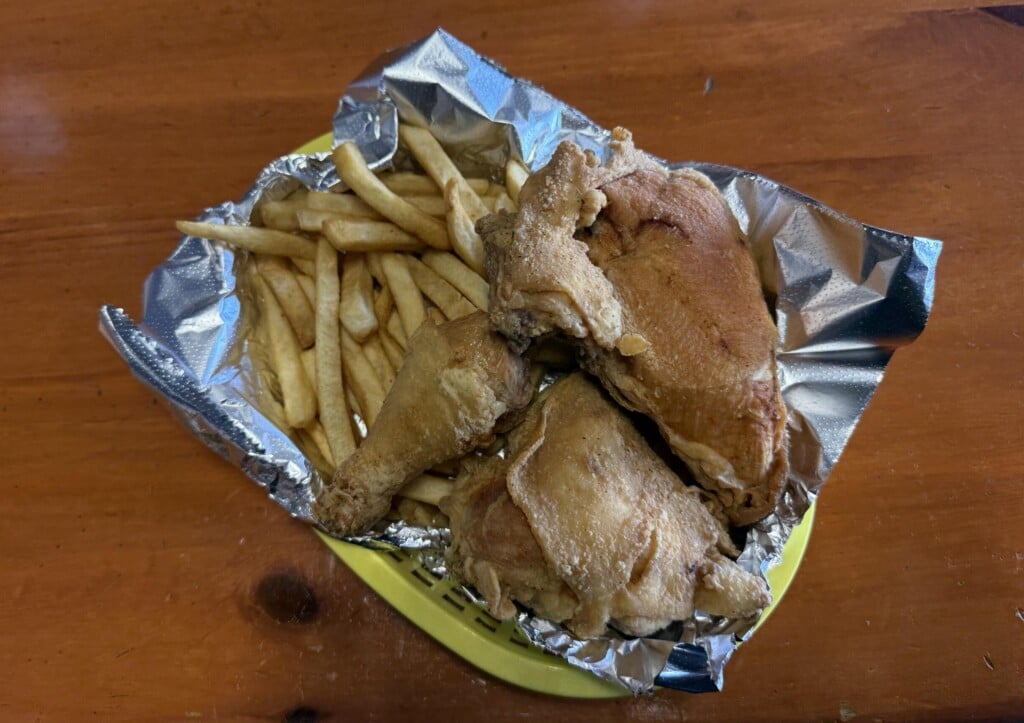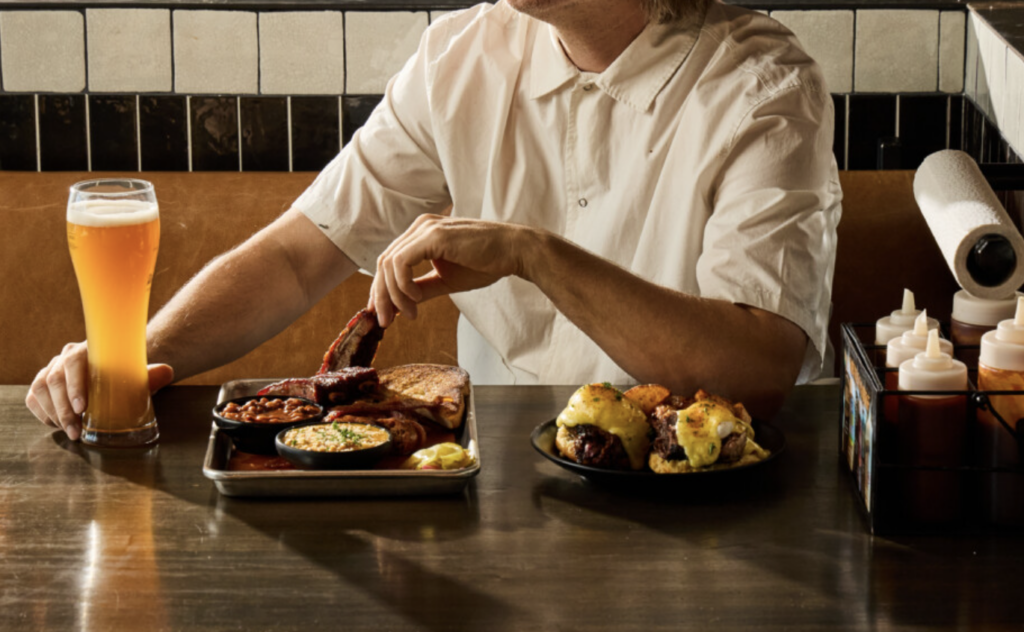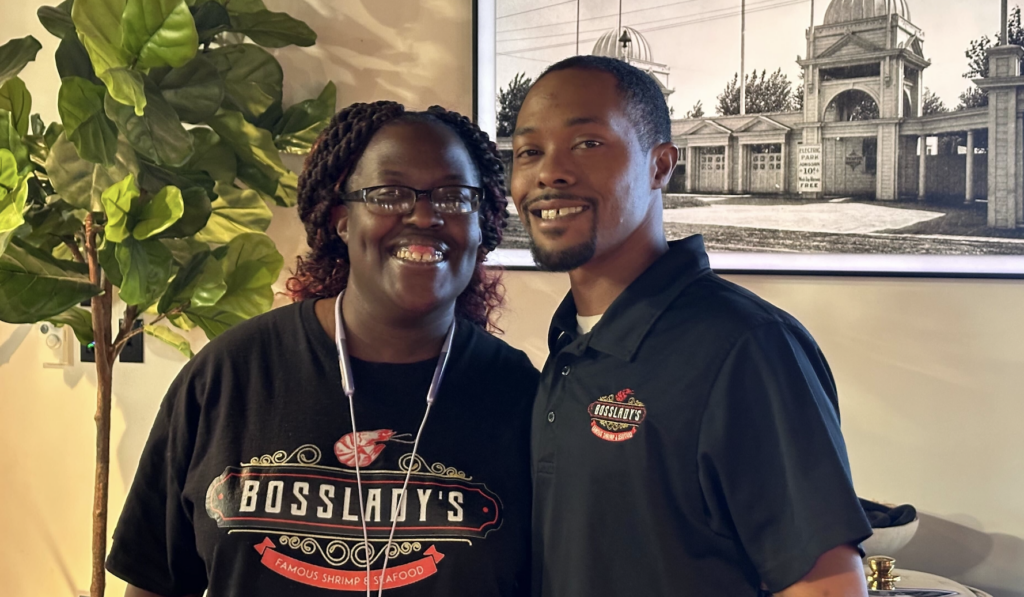Mise en Place: Liza Saracini of Florabelle Food & Festivities dishes on chef-dom and circular food systems
What separates a chef from a cook? Liza Saracini has grappled with that over the last six years as she transitioned from the corporate grind to a full-time business owner, cook, and chef.
Her business, Florabelle Food & Festivities, offers personalized cooking classes, catering, and meal prep. What sets Saracini’s services apart, however, is her priority of seasonal ingredients that support a regenerative, local food system. Plus, blending nourishment and joy, Saracini leans on her own medical journey to bring a lens of empathy and experience to meal prep for patients in recovery, postpartum parents, anyone grieving or in a major life transition, and more.
Even if you haven’t had a Florabelle class or meal, you may have enjoyed some of Saracini’s work from the kitchens of Zero Zero Pasta or Westport Cafe over the last few years. She enjoys donning the “cook” title and learning from a variety of experts, then using her diverse training to create the Florabelle experience exactly the way she has dreamed.
The Pitch: Tell us about yourself.
Liza Saracini: I’ve lived here most of my life, but I’ve also moved around a little bit. I’ve been working on Florabelle for six years, but I wouldn’t say I’ve been a chef for six years. I only feel like I’ve earned that title in the last year, but I still feel like every day I have to keep striving to earn that. I am super interested in health and wellness, but not in a way that feels all-consuming anymore. It feels more like a part of my lifestyle – the people I spend my time with, and just the way I am in the world, but I’m certainly not perfect.
I started off my career in corporate, then I got my master’s in data science, and I worked in Chicago and LA doing all kinds of corporate things. But over that time, my interests evolved into sustainability. And so now that I’m doing Florabelle full time, I’m starting to see how all these different avenues I’ve taken in my career are all bubbling up to this one moment. Besides that, I love just being in nature, being with my friends; I have a huge family, so it’s kind of all embodied through my business in an interesting way.
You mentioned that defining yourself as a chef is like a moving target. What would affirm that for you?
I think working in a kitchen, which I’m doing now, has made me feel more like a chef. Like, being in the industry and being a part of it–going through the ranks. There’s a big argument about do you need culinary school, do you not? But when I was interviewing chefs, maybe three or four years ago for this project I had at school at UCLA, everyone was like, you just need to work in a kitchen. I feel like putting in the hours is what you need to earn the title.
And the other side is knowing more than just how to cook, like sure there’s a cook who’s really good at cooking, and then there’s a chef who is managing the whole process of cooking, right? I think managing people, knowing how to create a menu that you can scale, and knowing how to source correctly. There are just so many details you have to think of.
But as far as my own cooking, having my own flair to things is important, but so is consistency. It comes out to putting in the hours and not just doing things on the fly. I mean, of course you need to know how to do things on the fly and adapt, but it’s more so delivering something that people can count on.
Tell us about a dream client/scenario for you.
I have done a very small version of this, but to do a bigger version would probably be my dream scenario. I worked with a farm in Boulder for an event, and I just did appetizers, but I was all over the farm. So, working with the farmers and being like, “What do you have in stock?” and then designing the dishes from there. Pretty much anything in nature, using nature, supporting nature, and having a great party.
What inspired the name Florabelle?
When I came up with the concept of Florabelle, it was one of those things where it just hit me, and I was like, I am doing this. I thought about a name and scope for maybe two weeks, and then somehow my great grandma got brought up, and her name was Flora Bernita, but we called her great grandma FloBelle, and I loved that. We have some of her cast irons and stuff, and it’s not like I cooked with FloBelle because I was like eight when she passed, but I loved the idea of the feminine passing down of recipes and wisdom.
If you could fix one issue in the food industry with a snap, what would it be?
I would like to see a circular food economy. Frequently, we hear that consumers need to choose better and farmers need to farm better. In reality, that’s a small fraction of the problem. It’s also waste disposal, government regulation, chefs, and more asking, ‘how can we strategically design out the extra waste that’s happening?’ How can we have a regenerative model with farmers that’s actually supported to mitigate the financial risk? It’s proven to be more financially abundant in the long run.
What’s the most rewarding part of going into someone’s home for a private cooking class?
The most rewarding part is seeing how the guests and the host kind of come alive. By the end, everyone has totally opened up. You could say it has something to with alcohol, but a lot of people don’t drink. It’s just using your hands, having this experience–I think my favorite part is while they’re eating and they’re like, oh my gosh, I made this salad dressing, or there’s my dumpling that looks funny, and they’re really owning that they had a part in creating something.
Is there an ingredient you avoid unless somebody specifically asks for it?
I don’t do seed oils or artificial colors. And I would say I avoid things that are overly trendy. I prefer longer proven things versus the latest superfood blah, blah, blah.
Speaking of ingredients, it’s our cannabis issue! Have you cooked with cannabis?
Cannabis has played a big part in my personal healing journey. I’ve frequently infused coconut oil for coconut balls, oatmeal bars, and other bite-size edibles. Soon, I plan on hosting a dinner that highlights a variety of functional herbal infusions. This will have an Ayurvedic approach, focusing on the nervous system.
What piece of cooking advice would you give the average reader to feel more confident in the kitchen?
I would say cook simply and cook seasonally. You can go to a farmers’ market and make really good food with just three to five ingredients. It doesn’t have to be complicated to be fun, nutritious, and even impressive.
I see people all the time wanting to do a date night in, and they’re taking on all these crazy recipes, and it ends up feeling deflating: by the end you’re tired. So it’s really just figuring out what kind of food you like and how you can find ways to infuse joy into the process.
Also, keep your knife sharp.






